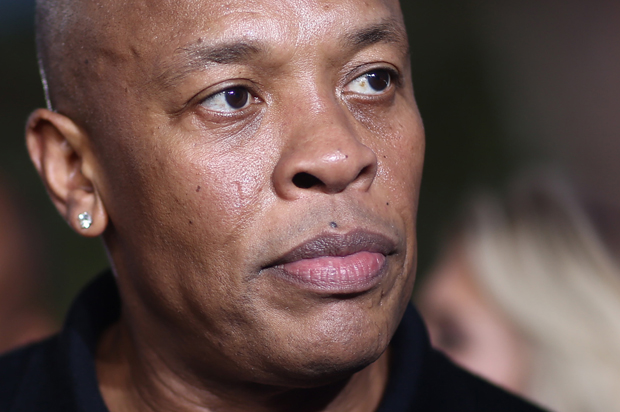Yesterday, hip hop journalist Dee Barnes published a followup essay in Gawker accepting Dr. Dre’s apology for brutally assaulting her at a nightclub in 1991.
After Barnes wrote at length about her assault in another Gawker essay last week — calling the new NWA biopic “Straight Outta Compton” a “revisionist history” for glossing over Dre’s violent history — the rapper issued a public apology in the New York Times.
“I apologize to the women I’ve hurt,” he wrote. “I deeply regret what I did and know that it has forever impacted all of our lives…Twenty-five years ago I was a young man drinking too much and in over my head with no real structure in my life. However, none of this is an excuse for what I did. I’ve been married for 19 years and every day I’m working to be a better man for my family, seeking guidance along the way. I’m doing everything I can so I never resemble that man again.”
Barnes, for her part, seems willing to accept Dre’s apology, beginning her essay with the line “Bravo, Andre. Humility is true self-knowledge.”
Saying she truly hopes that Dre is a changed man, Barnes says she understands why people might be apprehensive about an apology coming so hot on the heels of “Straight Outta Compton.”
“The stakes are high now and money talks, loud,” Barnes wrote. “Is this is a PR move by Universal, which released ‘Straight Outta Compton’? After all, the film just crossed the $100 million mark its second weekend in theaters. Is it damage control by Apple, which can no longer ignore that if you take the ‘Beats by Dre’ logo and remove the ‘S,’ you get a double entendre describing several woman he just apologized to? Is Dre himself really remorseful or just saving face?”
Still, Barnes said, the motive isn’t what is important here. “To me, the answers to these questions matter less than the fact that Dre stepped up and performed his social responsibility by finally taking accountability for his actions,” she writes. “Who cares why he apologized? The point is that he did.”
Dre’s apology has been a long time coming. As the only woman to press charges the rapper for his well-documented incidences of violence against women, Barnes writes that she became a “punchline” over the years, including being ripped on in an Eminem song that Dr. Dre released and produced.
“There are numerous songs that mention the incident, enough that essentially turned me into a, uh, punchline,” she continues. “Of the women assaulted by Dre, I was the only one to press criminal charges against him. I’m also the only one whose name later came up in one of his songs. ‘Guilty Conscience’ and the other songs containing the reference are products of clear and obvious misogyny on a cultural level and for what? Jokes?”
She concludes the essay with a broader condemnation of a society that fails to listen to female survivors of violence, a society that would rather excuse beloved pop culture icons than grapple with the nature of their crimes.
“This is bigger than me, and bigger than hip-hop,” she concludes. “This is about respect and awareness. As a result of speaking on my personal experience with violence, I have been vilified. Women survivors of violence are expected neither to be seen nor heard, and the pressure increases when it involves celebrities. No one wants to see their heroes criticized. And if they are African American, the community at large becomes suspicious of an underlying motive to tear down a successful black man. Excusing pop culture icons from scrutiny over their history of violence against women because they are elevated to “hero” status is wrong on so many levels. Creating notable, brilliant art does not absolve you of your faults. In the past, great art was enough to exalt men of their bad behavior, but in 2015 it’s no longer the case. Survivors have a right and an obligation to speak up (#NoSilenceOnDomesticViolence). We are too loud, too correct, too numerous to be ignored.”
Read the rest of the powerful essay over on Gawker.

